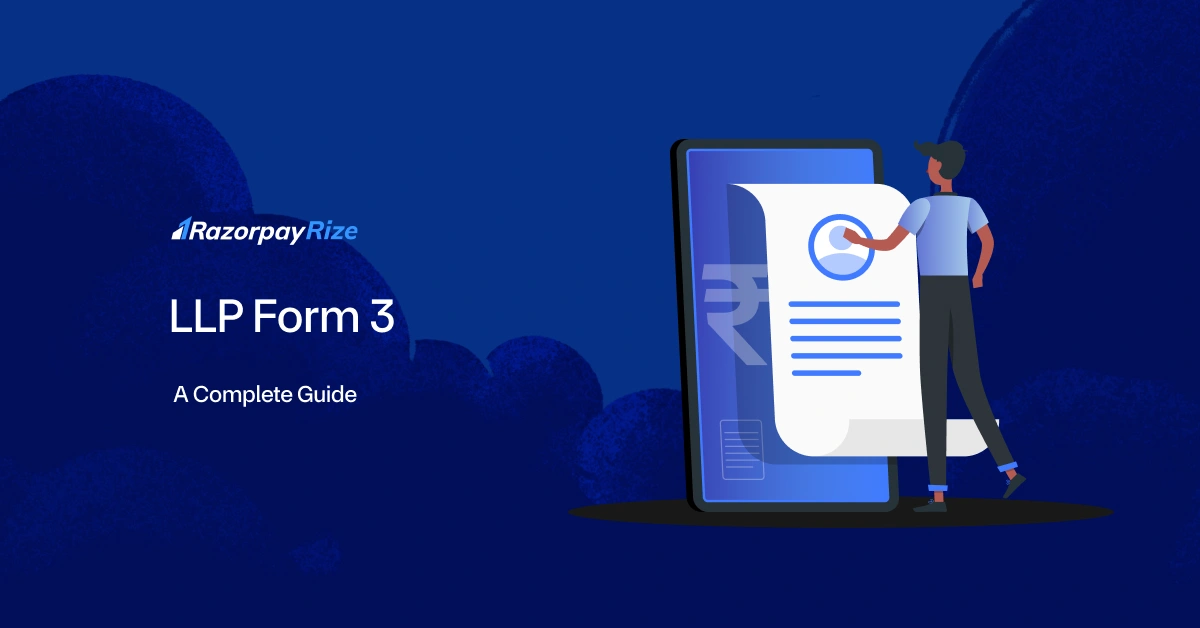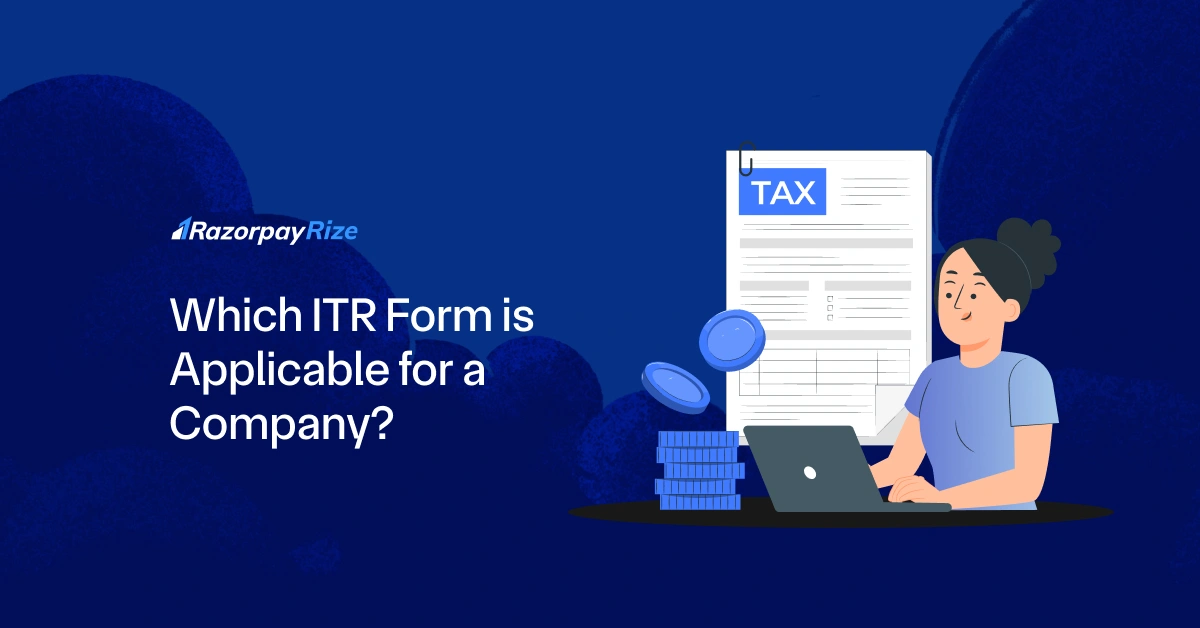Starting a company in India is an exciting journey, but it comes with a maze of legal and financial formalities. One common question entrepreneurs often ask is: Do I need a Chartered Accountant (CA) to register my company? The short answer is- not necessarily. However, understanding when and why to involve a CA can save you time, money, and compliance headaches down the road.
Let’s break down the role of a CA in company registration and explore whether you need one for your business setup.
Table of Contents
Is CA Required for Company Registration?
Technically, a chartered accountant is not mandatory to register a company in India. The Ministry of Corporate Affairs (MCA) provides an online portal that allows founders to complete the registration process on their own.
However, company registration involves more than just filing forms- it requires compliance with various legal and financial requirements. While you can handle these steps yourself, professional guidance from a CA can ensure accuracy and avoid costly mistakes.
Who is a CA (Chartered Accountant)?
A Chartered Accountant (CA) is a certified finance expert trained in areas such as accounting, taxation, auditing, and corporate laws. They help businesses navigate complex financial landscapes and comply with statutory norms.
Beyond technical know-how, CAs translate rules into business action. They design accounting systems and controls, prepare accurate financial statements, interpret tax laws (income tax, GST, transfer pricing and international tax issues), and conduct statutory and internal audits to reduce risk. They also support compliance tasks such as preparing ROC filings, tax returns, GST returns, and maintaining books in line with applicable standards.
For startups and MSMEs, they often act as a de facto finance team, building financial models for fundraising, advising on the optimal business structure, preparing due diligence packs for investors, or structuring transactions to be tax-efficient and legally sound.
Why Hire a CA While Setting Up a Company?
Hiring a CA during your company’s setup offers end-to-end support, including:
- Selecting the right company type (Private Ltd, LLP, Sole Proprietorship, etc.) based on your goals and tax implications
- Handling registrations like PAN, TAN, GST, and Certificate of Incorporation (COI)
- Drafting key documents such as the Memorandum of Association (MOA) and Articles of Association (AOA)
- Ensuring tax compliance right from the start
- Setting up your accounting system tailored to your business
- Preparing financial statements and projections that appeal to investors and lenders
In short, a CA simplifies the entire process and helps lay a solid foundation for your business growth.
The Legal Requirements for Company Registration
Under the Companies Act, 2013, company registration involves the following key legal steps:
- Selecting your business structure
- Obtaining a Digital Signature Certificate (DSC) for directors
- Filing the SPICe+ (Simplified Proforma for Incorporating Company electronically Plus) form with the MCA
- Preparing and submitting the Memorandum of Association (MOA) and Articles of Association (AOA)
- Applying for Permanent Account Number (PAN) and Tax Deduction and Collection Account Number (TAN) for tax purposes
While none of these steps legally require a CA, professional guidance can help avoid errors, delays, or non-compliance issues that could cost you in penalties or missed opportunities.
Benefits of Hiring a CA for Company Registration
- Expert handling of complex regulatory and tax matters
- Reduced chances of filing errors and rejections
- Better financial and tax planning from day one
- Time savings and peace of mind
That said, if you decide not to hire a CA, you can always use online platforms that provide comprehensive company registration services, guiding you through each step seamlessly and at competitive prices.
When is a CA Essential for Company Registration?
While not mandatory, involving a CA becomes essential in specific situations such as:
- Registering complex entities like Limited Liability Partnerships (LLPs) registration, sole proprietorship registration companies with foreign directors
- Preparing detailed financial projections and business plans for funding
- Ensuring strict tax and GST compliance, especially if your business deals with multiple states or international transactions
- Handling annual compliances post-registration, including audits and tax filings
In such cases, a CA’s expertise is crucial to keep your business compliant and financially sound.
Can You Register a Company Without a CA?
Absolutely! Company registration is possible without a CA, especially through the MCA’s online portal designed for entrepreneurs to file their incorporation documents directly. The process has been simplified over the years, making it more accessible than ever.
However, registering without professional help means you need to be very thorough with legal and financial nuances. Using an online platform that manages the end-to-end registration process can be a smart alternative- these platforms often offer packages that include form filing, document drafting, and government liaison, all without the higher fees of a traditional CA.
Frequently Asked Questions (FAQs)
Private Limited Company
(Pvt. Ltd.)
- Service-based businesses
- Businesses looking to issue shares
- Businesses seeking investment through equity-based funding
Limited Liability Partnership
(LLP)
- Professional services
- Firms seeking any capital contribution from Partners
- Firms sharing resources with limited liability
One Person Company
(OPC)
- Freelancers, Small-scale businesses
- Businesses looking for minimal compliance
- Businesses looking for single-ownership
Private Limited Company
(Pvt. Ltd.)
- Service-based businesses
- Businesses looking to issue shares
- Businesses seeking investment through equity-based funding
One Person Company
(OPC)
- Freelancers, Small-scale businesses
- Businesses looking for minimal compliance
- Businesses looking for single-ownership
Private Limited Company
(Pvt. Ltd.)
- Service-based businesses
- Businesses looking to issue shares
- Businesses seeking investment through equity-based funding
Limited Liability Partnership
(LLP)
- Professional services
- Firms seeking any capital contribution from Partners
- Firms sharing resources with limited liability
Frequently Asked Questions
Do freelancers need to register a company in India?
No, freelancers in India do not need to register a company to work legally. You can operate as an individual under your own name using your PAN card and file your income tax returns as a self-employed professional.
What does a CA do for a company?
A Chartered Accountant (CA) provides end-to-end financial and compliance services for a company, including:
- Choosing the right business structure during setup
- Company incorporation and registrations (PAN, TAN, GST, etc.)
- Bookkeeping and accounting as per legal standards
- Tax planning and filing (Income Tax, GST)
- Statutory audits and financial reporting
- Advising on cost control, cash flow, and budgets
- Assisting in fundraising by preparing investor-ready financials
- Ensuring compliance with corporate laws under the Companies Act, 2013
In short, a CA ensures that your business remains financially healthy, compliant, and investor-ready.
Which CA is highly paid?
The highest-paid Chartered Accountants in India are usually those who:
- Work in big consulting firms (like the Big 4- Deloitte, PwC, EY, KPMG) in senior positions
- Serve as Chief Financial Officers (CFOs) or Finance Heads in large corporations
- Specialise in niche, high-demand areas such as:
- International taxation
- Mergers & acquisitions (M&A) advisory
- Forensic auditing
- Risk and compliance management for large banks and multinationals
Build a strong independent practice serving high-net-worth individuals, big corporations, or startups in funding and IPO stages
















